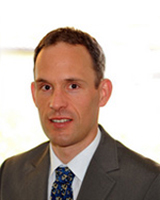
About: Axel Nather - Head of Sales and Marketing
We provide our services to a wide range of customers. The main industries that we deal with are the film converters, food and packaging companies and all processes where classical die-cutting and mechanical perforations are actually in use.
1. How prevalent is micro and macro laser perforation and scoring as an indispensable requirement in smaller agricultural businesses or other sectors like schools and offices?
In these specific businesses laser perforation and scoring technologies are applied only partly yet. We see some accumulated needs in these markets and also the emergence of new ideas and applications.
2. Apart from the existing comprehensive and innovative product line, does MLT have any plans in store for future laser scribing and scoring machinery?
We have a wide choice of existing solutions for our customers. However, as we adapt nearly every project exactly to the customer needs; we continuously push our product range ahead. This year, we plan some interesting software innovations and would like to establish new technologies for special industries.
3. What are the benefits of the compact laser scribing/scoring modules specifically designed to fit each customer's requirements? How cost effective are they for the manufacturer?
With the modular design we meet the expectations of our customers: Each module can be adjusted and used individually and are of high-precision. The modularity offers several advantages in production, service and in-field upgrades later. We could increase our own productivity for these parts up to 20% and lower the storage cost. Our customers benefit from such cost advantages.
4. Frozen foods and dairy is a burgeoning industry that employs the services of enterprises such as yours. Which other markets, from your perspective, pose as potential users?
The main industries that we deal with are the film converters, food and packaging companies and all processes where classical die-cutting and mechanical perforations are actually in use. Outside these industries we serve the tobacco industry and governmental organizations for safety features on paper materials.
5. Are the laser perforation techniques and devices used for medicinal or chemical products very different from those incorporated for fresh and convenience food?
The principals are very comparable; high precision and reliable laser engineering. The main differences are included in small, but important details. We need to ensure enough laser power, the specific needs of the industries – for example cleanliness and suction solutions.
6. Would you say that laser marking, as a technological service, is a significant variable in ascertaining authenticity of products and thereby holds a moral responsibility towards the general public?
Laser marking is a very interesting technological solution to support and safeguard the authenticity of products.
However, I think that this technology itself cannot hold any moral, but certainly support the end-consumer in purchasing original products. When we think especially about pharmaceutical products, it would personally give a good feeling to know that an original product is purchased with the ingredients I pay for and expect.
